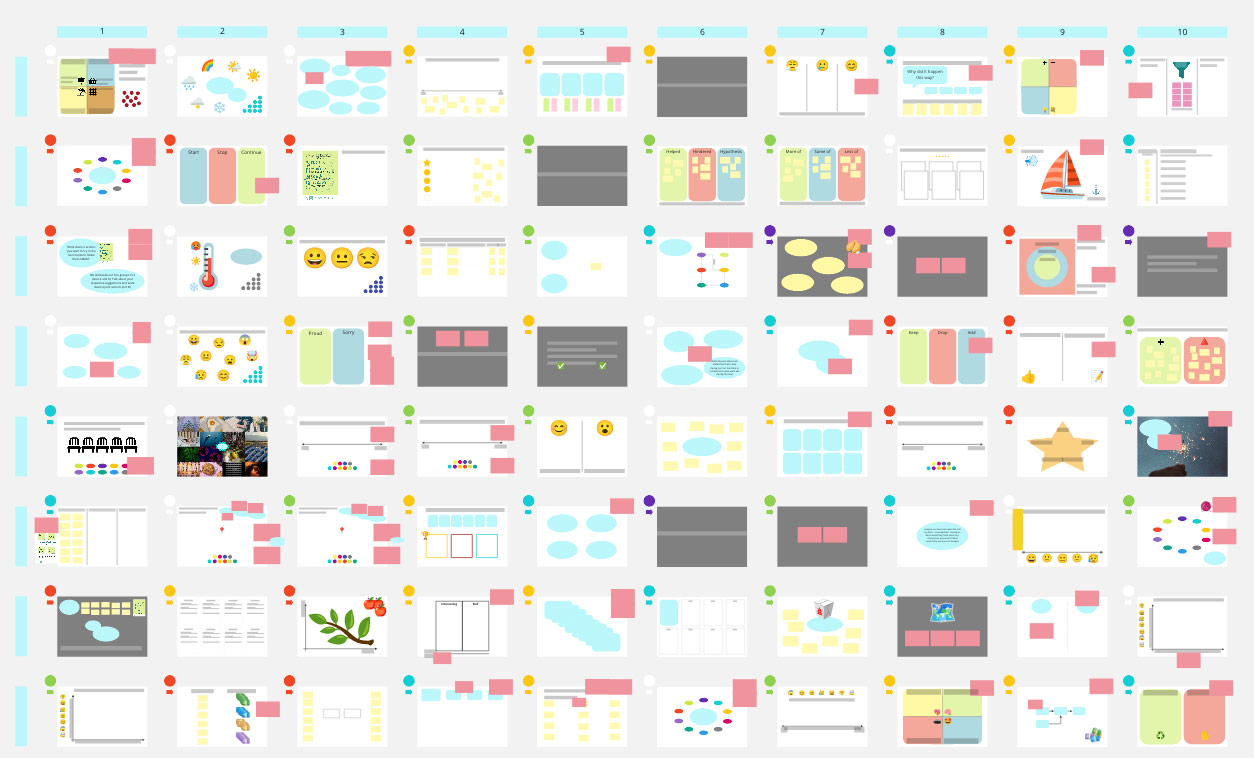Circles & Soup / Circle of Influence
(#29)
Create actions based on how much control the team has to carry them out
Source:
Diana Larsen who adapted it from 'Seven Habits of Highly Effective People' by Stephen Covey and 'Circle of Influence and Concern' by Jim Bullock
Prepare a flip chart with 3 concentric circles, each big enough to put stickies in. Label them 'Team controls - Direct action', 'Team influences - Persuasive/recommending action' and 'The soup - Response action', from innermost to outermost circle respectively. ('The soup' denotes the wider system the team is embedded into.) Take your insights from the last phase and put them in the appropriate circle.
The participants write down possible actions in pairs of two. Encourage them to concentrate on issues in their circle of influence. The pairs post their action plans next to the respective issue and read it out loud. Agree on which plans to try (via discussion, majority vote, dot voting, ...)



